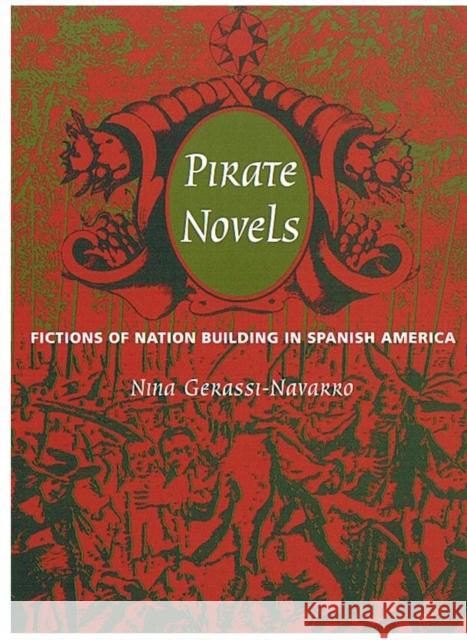Pirate Novels: Fictions of Nation Building in Spanish America » książka
Pirate Novels: Fictions of Nation Building in Spanish America
ISBN-13: 9780822323600 / Angielski / Twarda / 1999 / 264 str.
In "Pirate Novels" Nina Gerassi-Navarro examines an overlooked genre to reveal how history and fiction blend to address important isuses of nation building in nineteenth-century Spanish America. In the figure of the pirate, bold and heroic to some, cruel and criminal to others, she reveals an almost ideal character that came to embody the spirit of emerging nationhood and the violence associated with the struggle to attain it.
Beginning with an overview of the history of piracy, Gerassi-Navarro traces the historical icon of the pirate through colonial-era chronicles before exploring a group of nineteenth-century Mexican, Colombian, and Argentine novels. She argues that the authors of these novels, in their reconstructions of the past, were less interested in accurate representations than in using their narratives to discuss the future of their own countries. In reading these pirate narratives as metaphors for the process of nation building in Spanish America, Gerassi-Navarro exposes the conflicting strains of a complex culture attempting to shape that future. She shows how these pirate stories reflect the on-going debates that marked the consolidation of nationhood, as well as the extent to which the narratives of national identity in Spanish America are structured in relation to European cultures, and the ways in which questions of race and gender were addressed.
Providing new readings of the cultural and political paradigms that marked the literary production of nineteenth-century Spanish America, "Pirate Novels" uniquely expands the range of texts usually examined in the study of nation-building. It will interest literary scholars generally as well as those engaged in Latin American, colonial, and postcolonial studies.











